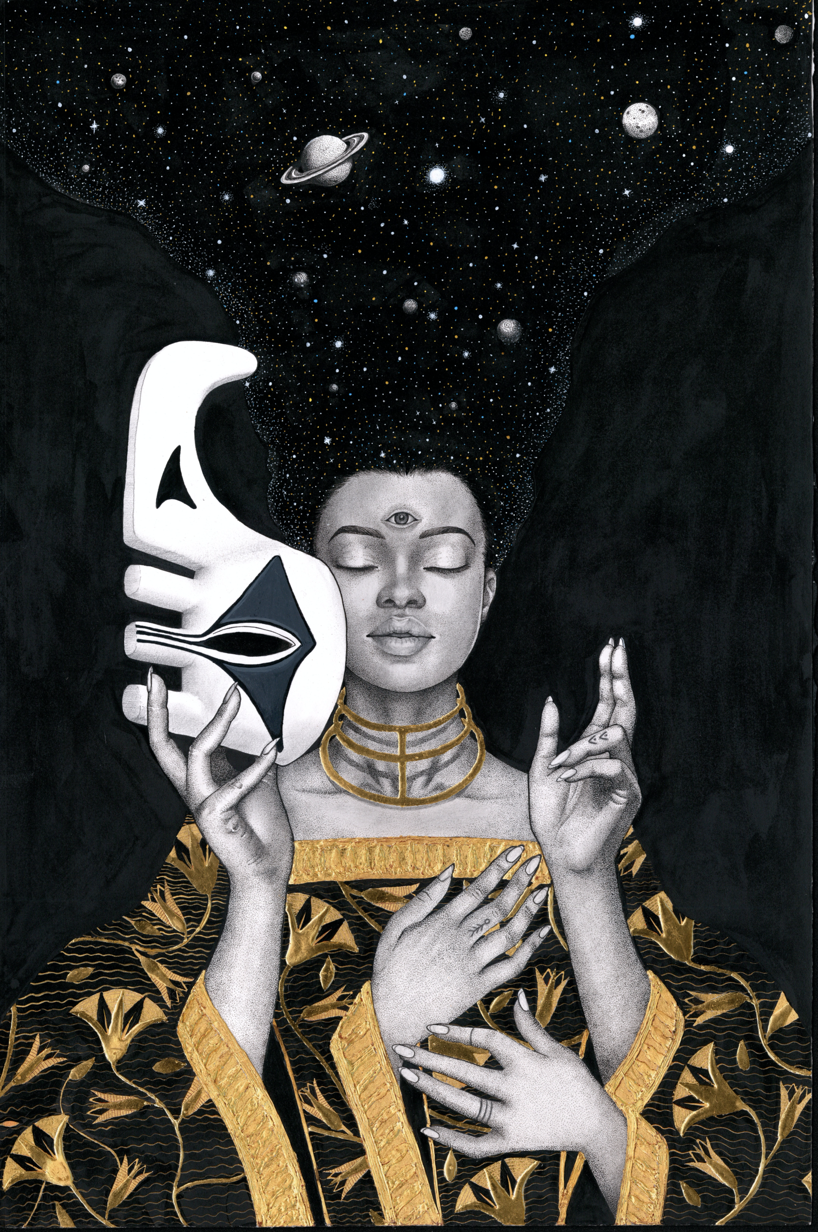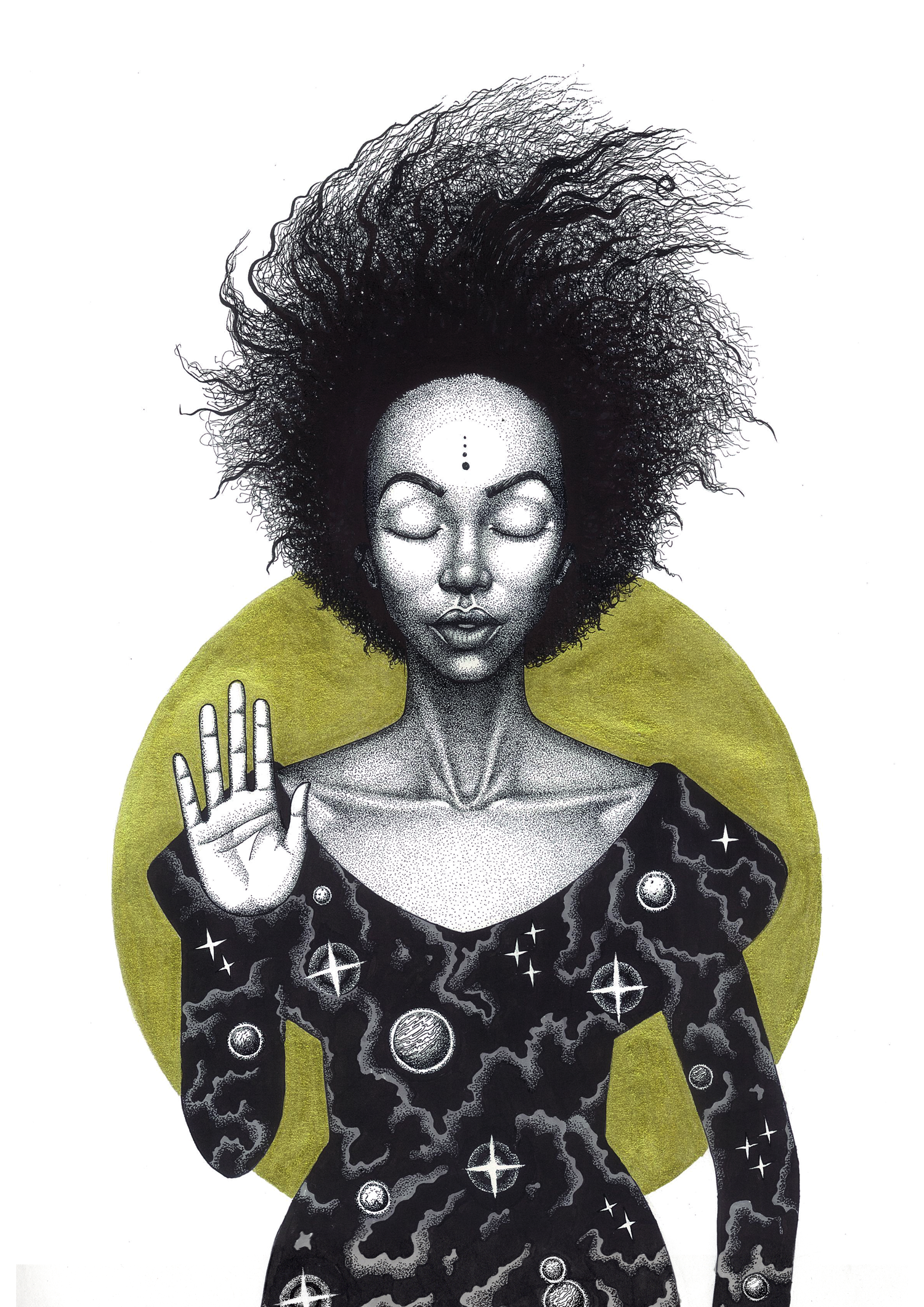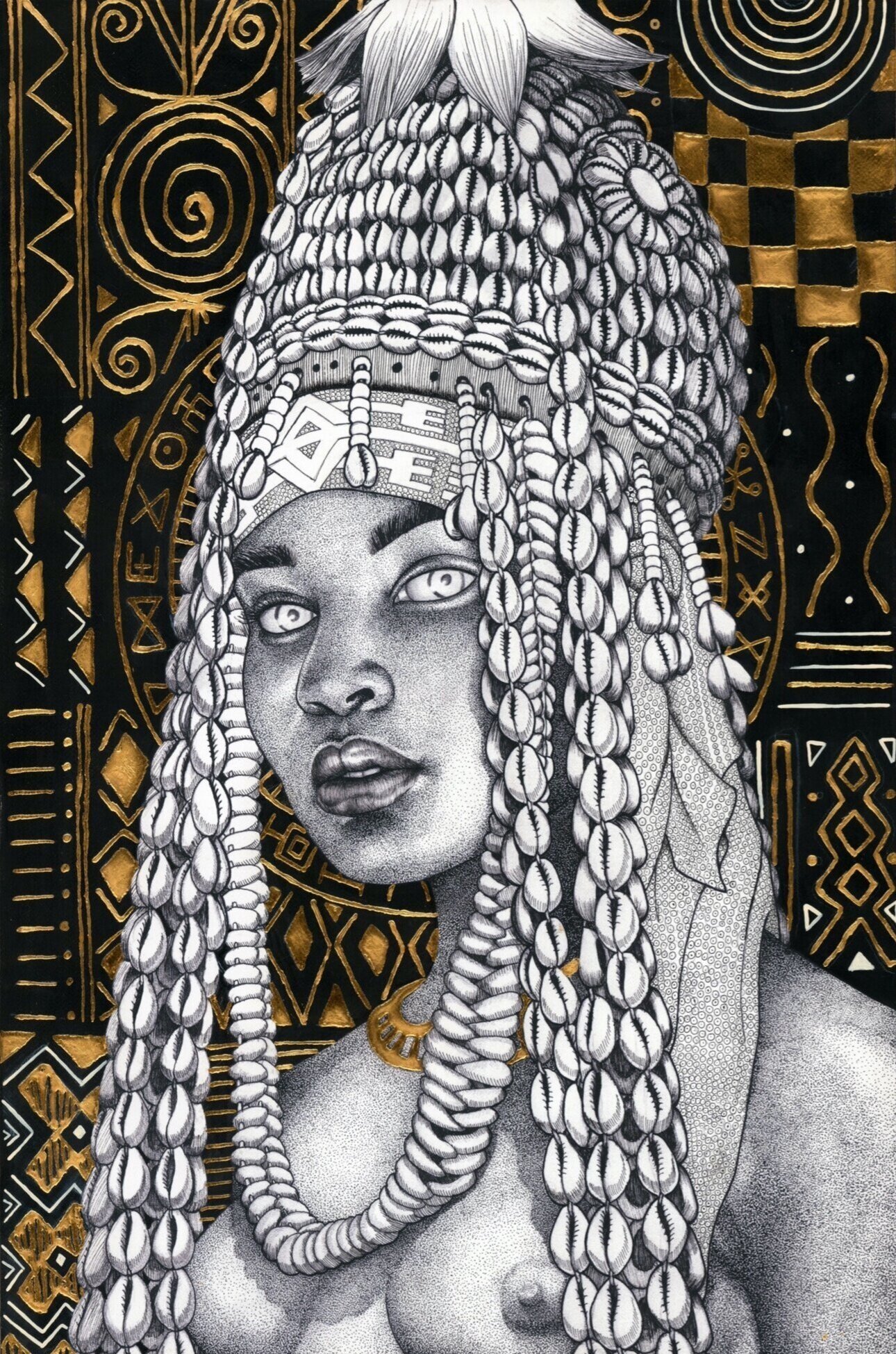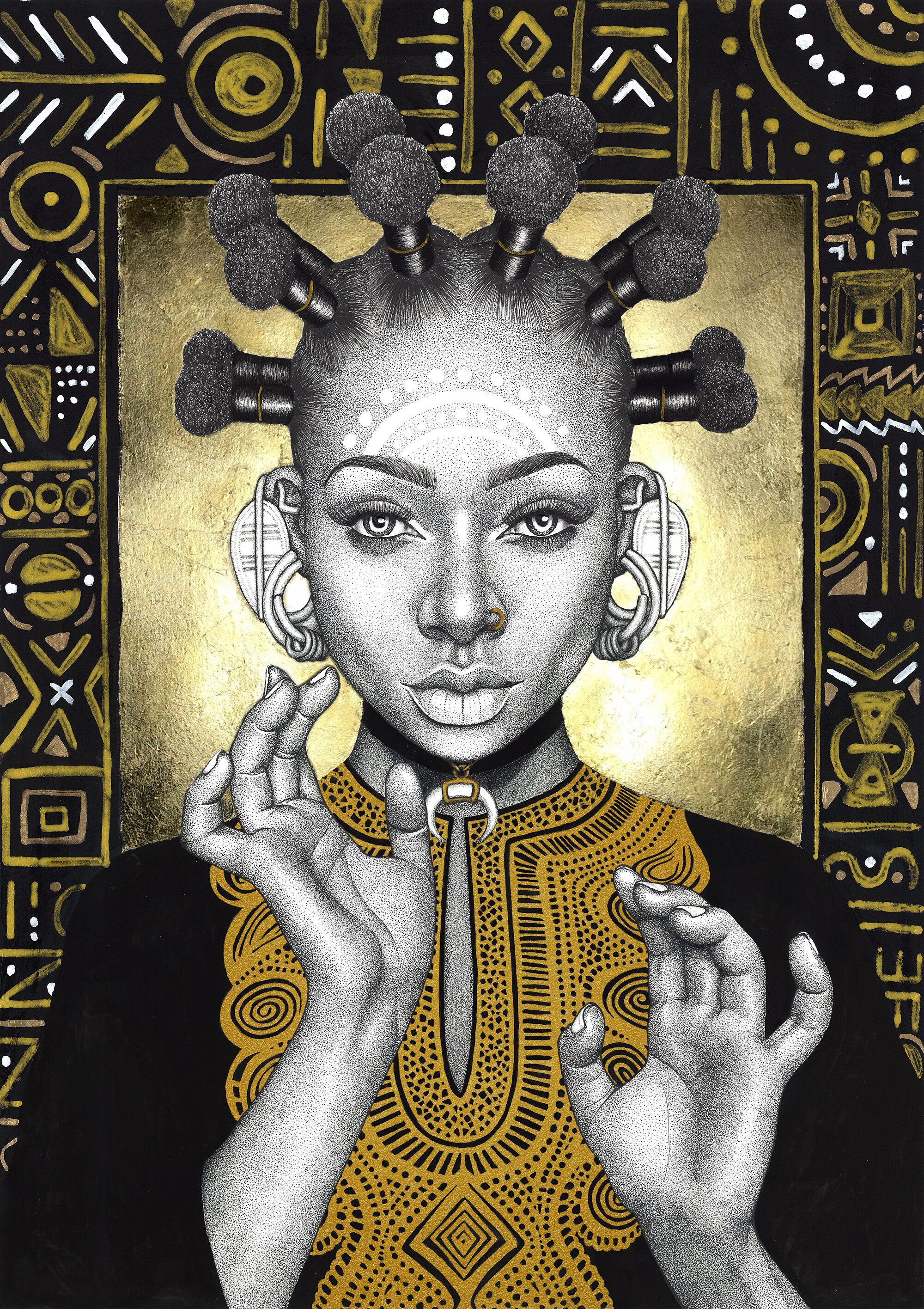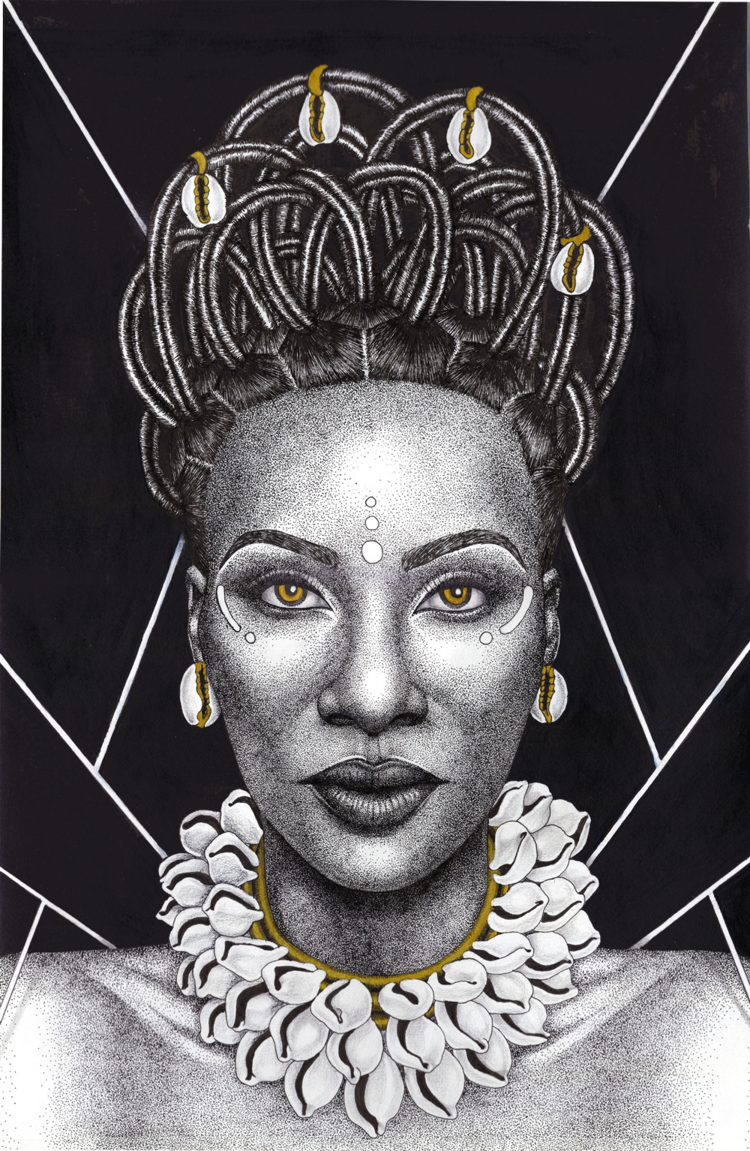Omugwo (Sacred Postnatal Care) Tradition in Igbo Culture
In Igbo culture, the period following childbirth is not only a time for celebrating new life but also a critical phase for the well-being of both mother and child. Omugwo is a revered postnatal care tradition that reflects the deep cultural values of communal care, respect for family ties, and the holistic nurturing of life in Igbo communities. Omugwo is a traditionally institutionalized care system that reinforces the bonds between generations, honors the role of motherhood, and ensures the health and recovery of the new mother.
The Role of the Maternal Figure in Omugwo
The involvement of a female relative is central to Omugwo practice, it is typically done by the new mother’s own mother. The child’s maternal grand-mother typically acts as the Omugwo caregiver, and she assumes the responsibility of providing round-the-clock care for both the mother and her newborn. The caregiver's presence is indispensable, as she brings with her a wealth of knowledge and experience that has been passed down through generations. Her role is multifaceted, encompassing physical, emotional, and spiritual care.
The Omugwo caregiver typically sleeps in the same room as the mother and child, to make sure that both are well-attended to throughout the night. She assists in bathing the newborn twice daily, preparing the baby for feeding and sleep, and offering comfort to the new mother. Her presence also serves as a safeguard against any sexual advances from the husband during this delicate time, allowing the mother to focus entirely on recovery and bonding with her baby.
Traditional Healing Practices During Omugwo
One of the key aspects of Omugwo is the series of traditional healing practices that are administered to the new mother. These practices are designed to promote physical recovery, particularly in the perineal and abdominal areas, which endure significant strain during childbirth.
Perineal Care: Every morning and evening, the caregiver or available nurse uses hot wet cloth pads to press the perineum and abdomen of the new mother. This practice assists with perineal healing, relieves soreness, and enables the involution of the uterus, helping the body return to its pre-pregnancy state more quickly.
Inochi-Oru: In certain Igbo communities, if the mother experiences an extensive perineal tear, she is instructed to adopt a specific posture called “inochi-oru”. This involves sitting for about a week with her legs extended and feet crossed over while seated on the firm, narrow proximal end of a palm tree frond, known as “isi-igbegili”. This posture is believed to aid healing by keeping the affected areas aligned, reducing the risk of complications such as the inadvertent escape of flatus or feces.
Postpartum Dietary Care: The Omugwo caregiver also prepares a special diet for the new mother, rich in condiments like “uda”, “uziza”, “efuru”, and “oshosho”. These spices are believed to control postpartum bleeding, hasten the involution of the uterus, and stimulate the flow of breast milk. The new mother is encouraged to rest and avoid any strenuous activities for the first three months after childbirth, allowing her body to heal completely.
Abdominal Wrapping: After meals, the caregiver wraps the new mother's abdomen with a traditional girdle, which acts as a supportive band to aid in the healing process and to help the mother regain her pre-pregnancy figure.
Cam Wood Application: Another routine carried out in ancient times during Omugwo was the application of cam wood, a cosmetic skin conditioner and moisturizer. This traditional remedy keeps the mother’s skin smooth and soft, to help her feel pampered and cared for during her recovery.
Strengthening Family Bonds Through Omugwo
Omugwo is also a time for strengthening family ties and stabilizing relationships between families. The new baby is seen as a testament to the good upbringing of the mother, and therefore, a credit to the grandmother. The arrival of the new grandmother, usually before the baby is born, is a momentous occasion. She comes bearing gifts and food items like fish, meat, and condiments, all intended to nourish and support her daughter during this period.
The significance of Omugwo extends beyond the immediate family. It is a time when relationships between the woman's parents and her in-laws are solidified. The successful completion of Omugwo is a source of pride for the grandmother, as it demonstrates her competence in raising a daughter who can now become a mother herself. This tradition underscores the communal nature of child-rearing in Igbo culture, where the well-being of the child and mother is the responsibility of the entire extended family.
The Role of Sexual Abstinence and Breastfeeding
In the past, sexual abstinence was an important aspect of the Omugwo period. For a period of 3 to 6 months after childbirth, no sexual activity was permitted. This practice made sure that the mother could focus entirely on her recovery and on nurturing her newborn. It also serves as a form of respect for the intense physical and emotional changes that the mother is experiencing.
Breastfeeding is another vital component of Omugwo. The baby is breastfed exclusively for an extended period, usually lasting 2 to 4 years. This practice is deeply rooted in Igbo culture and is believed to provide the child with the best possible start in life, both nutritionally and emotionally. In the unfortunate event that a mother dies during childbirth, the responsibility of breastfeeding the child may fall to her mother, provided that certain ceremonies are performed to induce milk flow.
The Conclusion of Omugwo
At the conclusion of the Omugwo period, typically after three months, the new father honors his mother-in-law with gifts as a token of appreciation for her support and care. This gesture is not only a sign of gratitude but also a recognition of the invaluable role that the grandmother has played in taking care of the health and well-being of her daughter and grandchild. The exchange of gifts also reinforces the bonds between the two families, celebrating the continuation of life and the successful transition of the new mother into her role.
The Cultural Significance of Omugwo
Omugwo is a rite of passage that reflects the core values of Igbo society. It honors the wisdom of elder women, reinforces the importance of family and community support, and ensures that both mother and child are nurtured and protected during one of the most vulnerable periods of their lives. The tradition of Omugwo holds the Igbo belief in the sanctity of life, the intimate connection of family, and the vital role of women in preserving and transmitting cultural knowledge.
In a world where modern medicine now dominates postnatal care, Omugwo remains a powerful reminder of the enduring value of traditional practices that prioritize holistic well-being, familial bonds, and the continuity of life. It is a testament to the resilience and wisdom of Igbo culture carried on the backs of Igbo women, making sure that each new generation is welcomed into the world with love, care, and a deep connection to their heritage.
What are some Omugwo practices observed in your community? Let us know in the comment section below. Dalu!







